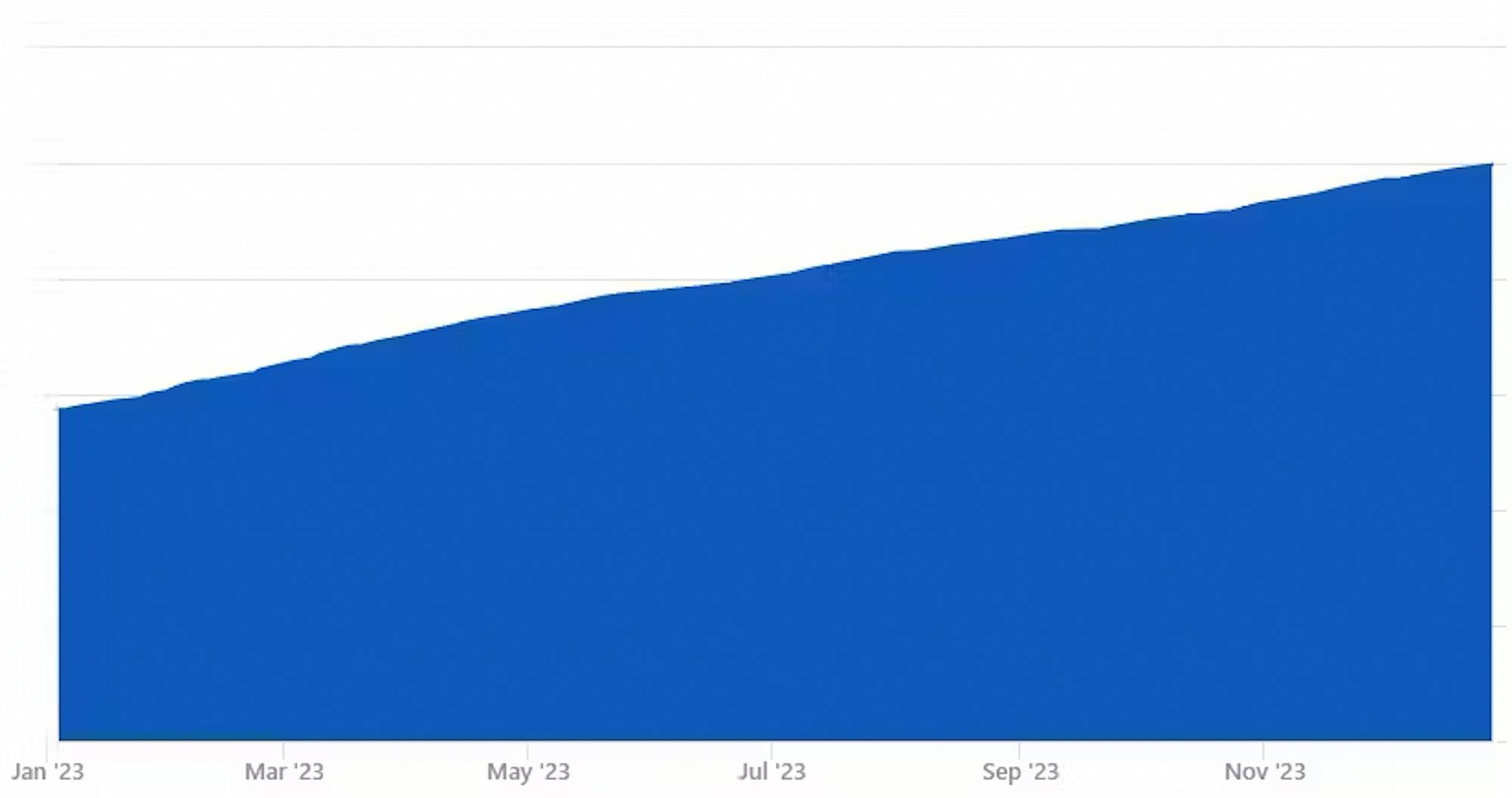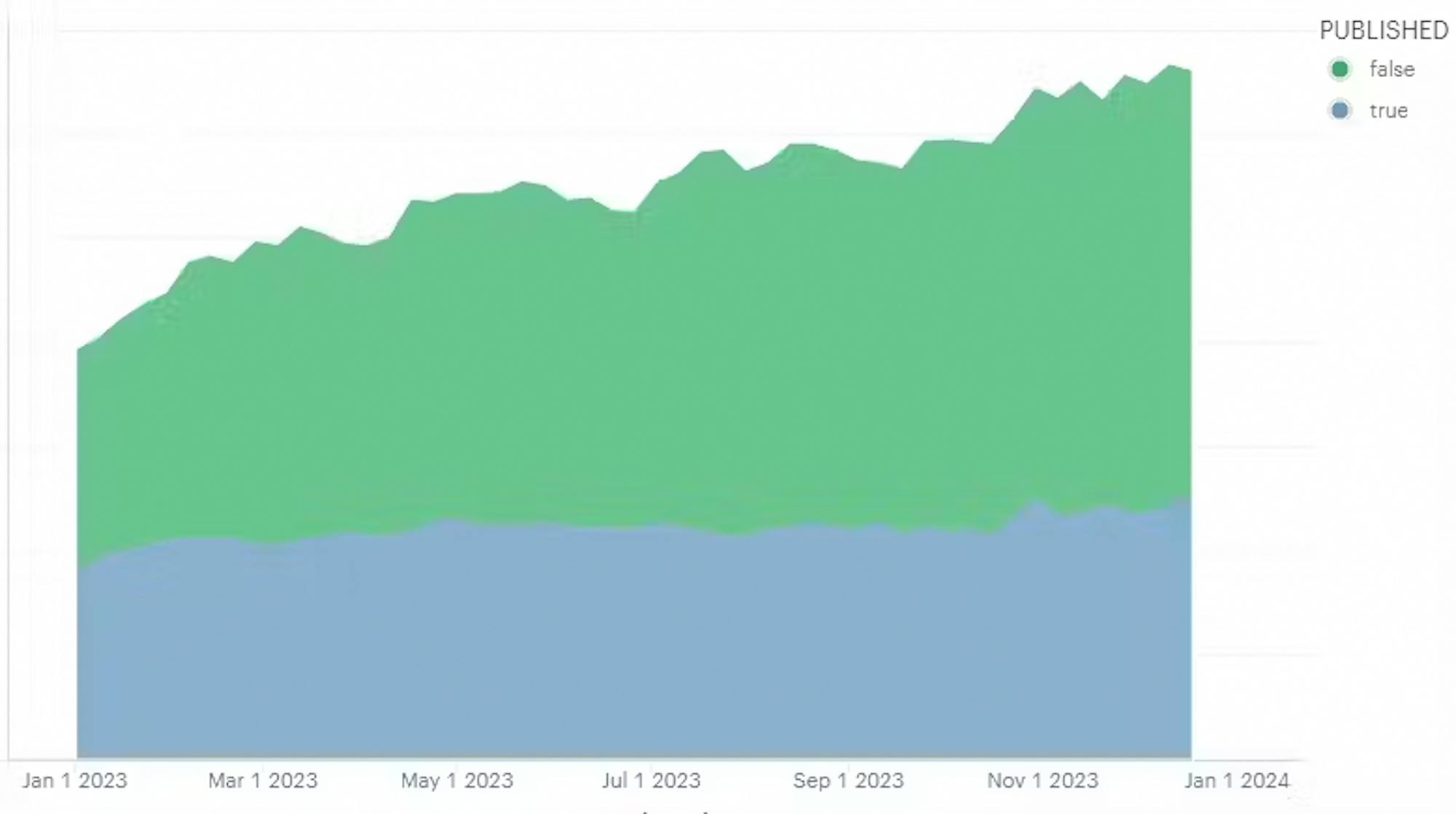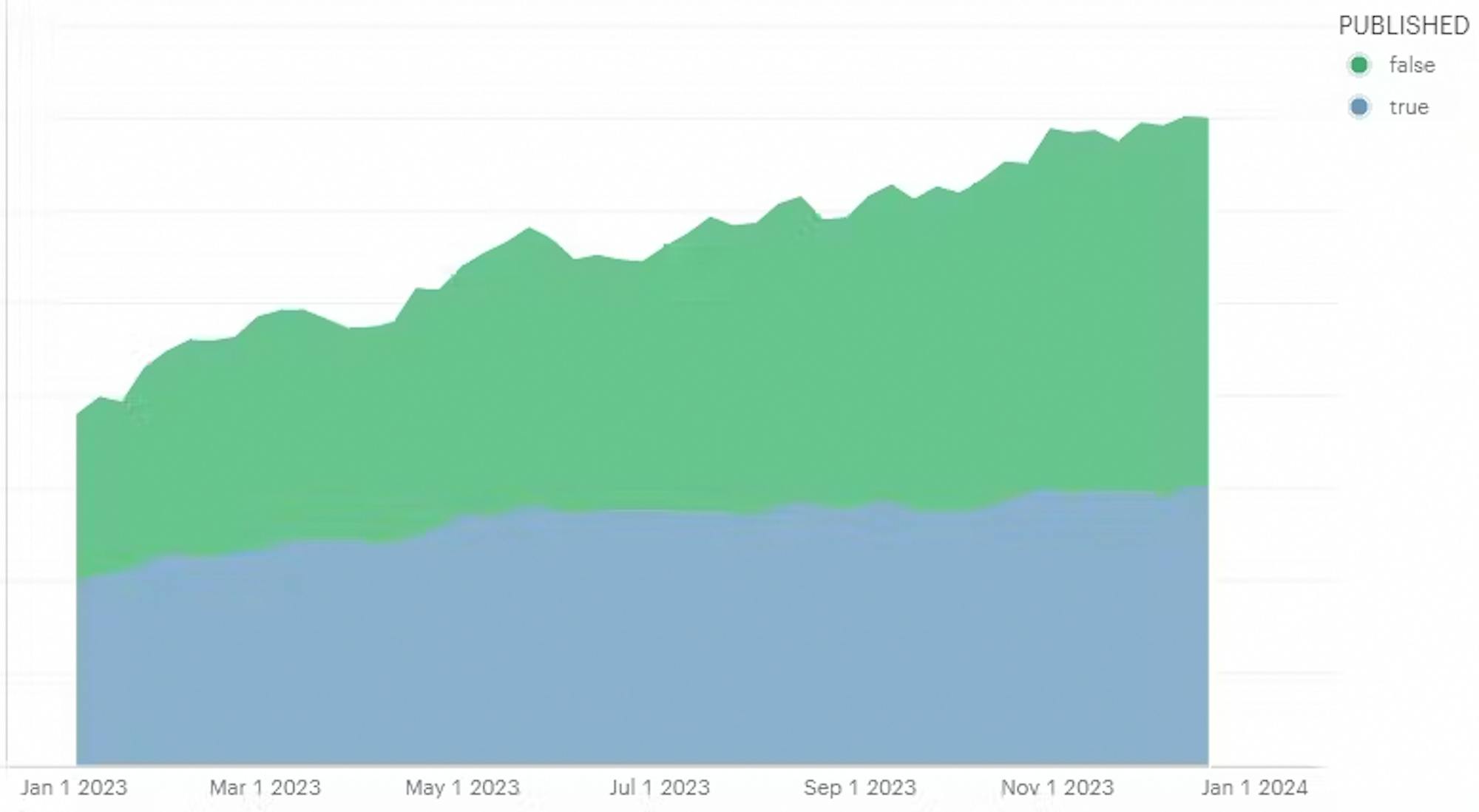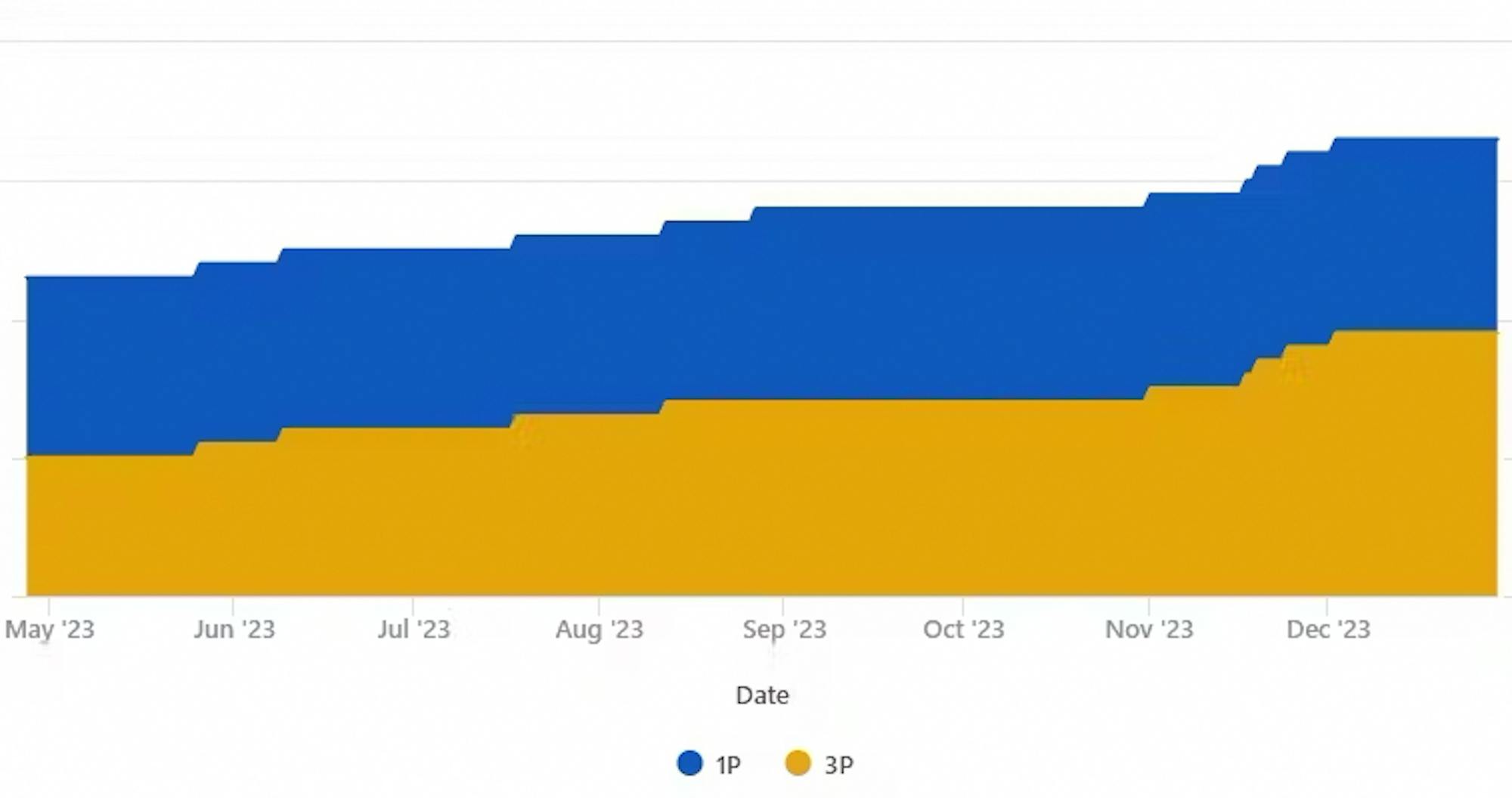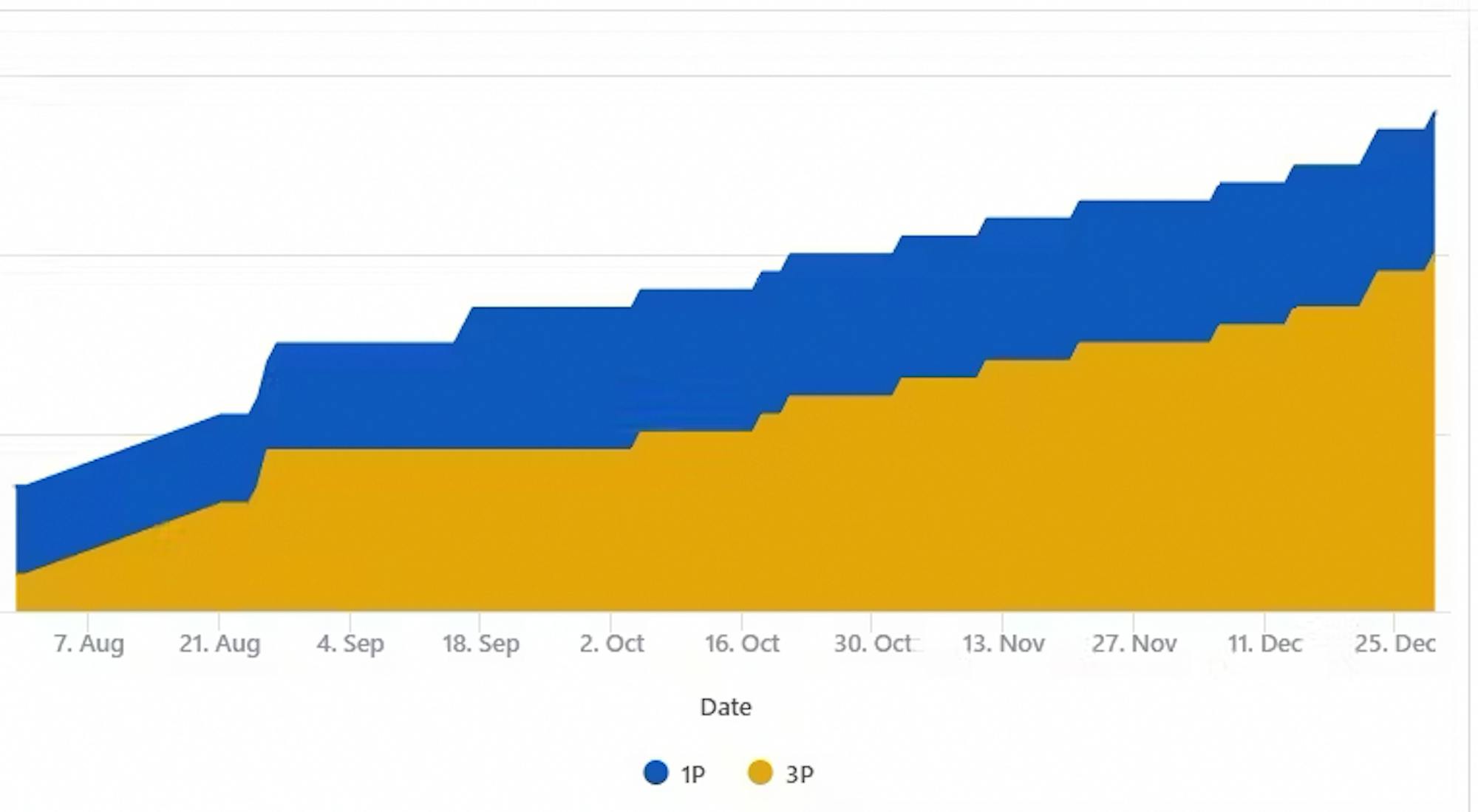5 tips for enhancing your tool stack with Packs
A look at how IT admins can enable teams to build sustainable and secure workflows.


Eric Koleda
Developer Advocate at Coda
Blog > IT teams · 6 min read
Growth in both Pack makers and Pack usage confirms their value.
In 2023, the number of Coda makers creating Packs grew at a steady pace—almost doubling over the course of the year. Adoption of those newly developed Packs is growing at the same rate, suggesting that they’re adding tangible value to the Coda platform. A growing number of Packs also brings more integration points to and from Coda docs, increasing the productivity of Enterprise users enormously. Our recommendation for admins: To be sure your workspaces have access to these features, double-check that Packs are enabled, then use Pack controls to selectively review and approve them.Private Packs show the fastest growth—and connect internal tools.
Private Packs are those that are not published but are used by an individual, team, or within an organization. Surprisingly, as we initially spent much of our attention on the public marketplace, 2023 saw a dramatic rise in the number of private Packs in use. There are now more private Packs in active use than published ones, and this has more than doubled over the course of the year. It goes to show that Packs don’t have to be shared widely to be impactful. Connecting to a proprietary or internal service can provide huge value—and it’s often quite simple to build.
New Pack features offer opportunities for improved Packs.
In 2023, we launched cards and two-way sync, two exciting features that can increase the value of Packs. Cards are an alternative, more visual display format for objects that allow the user to easily consume key information, and two-way sync offers smoother data integration through Packs. The Linear Pack added cards so users could easily convert a link into a card with rich, live information. Coda’s own Jira Pack helps you run better standup meetings and team dashboards by seamlessly updating tasks as you discuss or tackle them—and changes are reflected in both places. Our recommendation for admins: Take a closer look at these features (and other new launches in the Packs SDK) that could help you to increase the value of your Packs. We track and communicate updates to Pack features in the SDK changelog, so you can stay abreast of all our latest changes and find new opportunities to improve workflows.API access to page content unlocked new use cases.
You asked, and we delivered! The Coda API has new functionalities (including HTML and Markdown import and export) that can enable new workflows. For example, you can now create and update pages via the API as well as reading their content. This means you can connect the unstructured data in Coda to any external service. Our recommendation for admins: We recommend you review your internal workflows and applications to see what could benefit from being able to import from or export to a Coda doc.

IPaaS (Integration Platform as a Service) apps are popular.
IPaaS integrations like Zapier, Make, and Relay have been hugely popular on Coda, accounting for a significant portion of traffic to our API. Our collaboration with Relay was really positive and that indicates that it could be worth pursuing more IPaaS integrations. Our recommendation for admins: To get more visibility into API access of Coda, you can create service worker accounts. For example, create a “Make” account. Anytime you want to drive a Make automation, add that user to the doc, and use API credentials associated with that account. Then, you can easily track how external services are interacting with Coda via our API.
API traffic from IPaaS
Zapier (blue) and Make (yellow) account for nearly 50% of usage (by number of users).
Enhance your tool stack with Packs.
We're continually looking at data to make Coda better, including how teams are leveraging Packs. And we'll keep sharing what we learn—so that we can make, better, together.In the meantime, explore our Gallery of Packs to help your team's work feel less like work.
Related posts
Explore more stories for IT teams.













